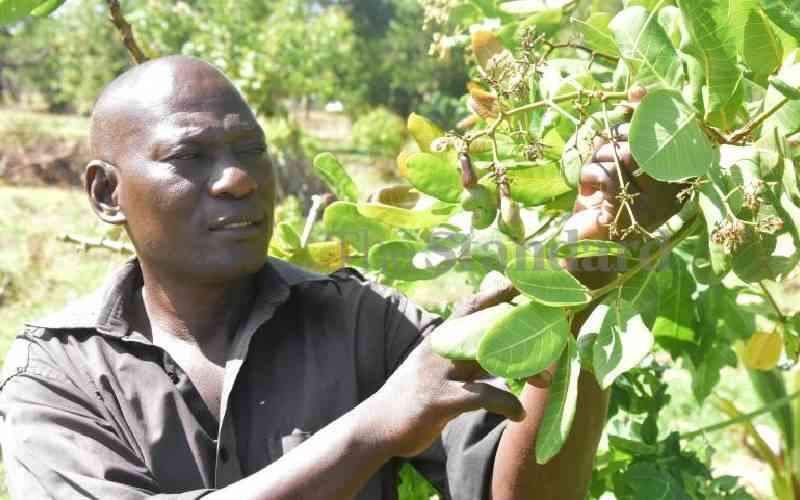×
The Standard e-Paper
Smart Minds Choose Us

Three decades after the collapse of the State-owned Kenya Cashew Nut Limited factory in Kilifi, the industry continues to face major problems, with farmers feeling the heat.
The growth of the crop has dropped significantly as most farmers abandoned it due to low prices for raw cashew nuts yielding varieties and lack of capacity in value addition by local farmers, among other challenges.